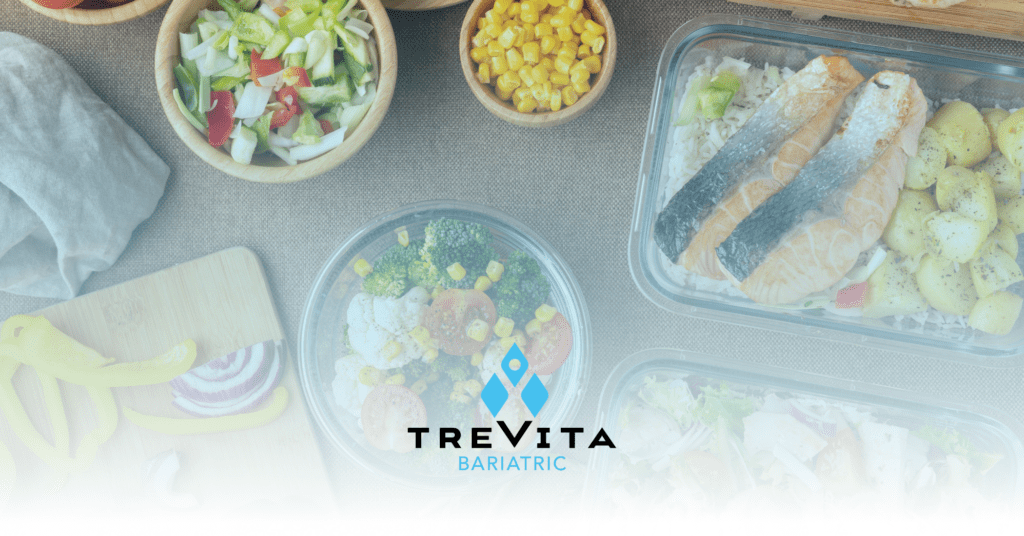Gastric bypass surgery is one of the most common weight loss procedures in the United States. The surgery helps people lose weight by restricting the amount of food eaten and reducing the absorption of nutrients. This complete gastric bypass diet will help in your weight loss journey.
Weight loss surgeries like gastric sleeve also help patients achieve long-term weight loss goals.
Read more: Gastric Sleeve vs. Gastric Bypass
Following a strict gastric bypass, a diet is essential for postoperative patients to ensure proper nutrition and health. This diet consists of four stages that gradually progress in complexity. Each stage has specific food guidelines and nutritional requirements that must be followed to maximize the benefits of the surgery.
Stage 1: Clear Liquid Diet
Immediately following surgery, patients must only consume clear liquids to prevent nausea and vomiting. This includes broth, sugar-free gelatin, skim milk, tea, coffee (with no creamer), and sugar-free juice or popsicles. This stage also limits a person’s fluid intake to two cups per hour.
Stage 2: Full Liquid Diet
The second stage of the gastric bypass diet allows for gradually reintroducing thicker liquids such as nonfat Greek yogurt and sugar-free, fat-free pudding. Liquids must remain clear, however. This stage also increases fluid intake to three cups per hour and includes pureed foods such as applesauce and canned vegetables.
Stage 3: Soft Diet
This stage introduces soft, easy-to-digest foods such as oatmeal, cooked cereal and pasta, mashed potatoes, cooked fish or poultry without skin, lightly cooked eggs, low-fat cheese and cream cheese, tofu in small amounts, nonfat sour cream and yogurt, and steamed vegetables.
Stage 4: Regular Diet
The last step of the diet reintroduces a variety of healthy foods such as lean proteins (fish, poultry, tofu), complex carbohydrates (whole grain breads, nuts, seeds, and legumes), fruits and vegetables with little fat or sugar added to them, and low-fat dairy products.
What Foods Should You Avoid After Gastric Bypass Surgery?
After gastric bypass surgery, you must follow a specific diet plan to ensure your body recovers correctly and stay healthy. The specific foods you should avoid can vary depending on your individual needs, but certain food groups should generally be avoided. These include:
1) High-Fat and Oily Foods
These include fried foods, chocolate, and full-fat dairy products. These contain high-fat levels, which can slow digestion and cause nausea.
2) High-Sugar Foods
High sugar content in food can also delay emptying from the stomach pouch and result in dumping syndrome. In this condition, food moves too quickly through the small intestine resulting in nausea, abdominal pain, and diarrhea. Examples of high-sugar foods include candy, soda, pastries, and sweets.
3) High-Fiber Foods
High fiber content can cause discomfort within the pouch and intestines. This includes whole grain bread, cereals, legumes, and vegetables like broccoli or Brussel sprouts.
4) Carbonated Beverages
Carbonation can cause gas, bloating, and discomfort from the pressure on your pouch. Beverages like soda, sparkling water, and beer should be avoided.
5) Alcohol
Alcohol can interfere with the absorption of essential vitamins and minerals in your body. It can also increase the risk of ulcers and other complications after surgery.
Trevita is the best place for gastric bypass in Mexico. Our highly experienced team of surgeons and nutritionists will assist you in adapting to your new diet plan following the procedure.

